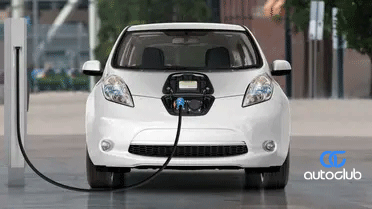The Importance of Car Innovation in the Automotive Industry

Introduction
In an ever-evolving automotive landscape, the importance of car innovation cannot be overstated. As technology advances, vehicles become more than mere modes of transportation—they transform into hubs of cutting-edge features and safety measures. This article delves into the multifaceted realm of automotive innovation, exploring its impact on safety, sustainability, and the overall driving experience.
The Roadmap of Car Innovation
Innovations in Vehicle Safety
Advancements in safety features stand as a testament to the industry’s commitment to protecting drivers and passengers. From anti-lock braking systems (ABS) to adaptive cruise control, car innovation has significantly reduced accident rates and enhanced road safety.
Sustainable Mobility Solutions
The automotive industry is steering towards sustainability, with innovations like electric vehicles (EVs) and hybrid technologies. These eco-friendly alternatives contribute to reduced carbon emissions, aligning with global efforts to combat climate change.

Connectivity and Smart Technology
Modern cars are no longer just means of transport; they are smart, connected devices on wheels. Infotainment systems, GPS navigation, and autonomous driving capabilities are reshaping the driving experience, making it safer, more enjoyable, and efficient.
Materials and Manufacturing Advancements
Innovations extend beyond features to the very materials used in manufacturing. Lightweight materials, like carbon fiber, enhance fuel efficiency, while 3D printing revolutionizes the production process, making it more cost-effective and environmentally friendly.
The Importance of Car Innovation in the Automotive Industry
The automotive industry’s progress hinges on innovation. From ensuring safety to addressing environmental concerns, each stride forward brings about positive changes. Car innovation is the driving force propelling the industry into a future where vehicles are not only reliable but also sustainable and technologically advanced.

FAQs
What role does innovation play in reducing accidents?
Innovation in safety features, such as collision avoidance systems and automated emergency braking, significantly contributes to accident reduction by alerting drivers and taking preventive actions.
How do electric vehicles contribute to sustainability?
Electric vehicles contribute to sustainability by producing zero tailpipe emissions, reducing dependence on fossil fuels, and promoting the use of clean energy sources.
Are autonomous vehicles the future of driving?
Yes, autonomous vehicles represent the future of driving, promising increased safety through reduced human error and providing a more efficient and convenient transportation experience.
How do lightweight materials impact fuel efficiency?
Materials like carbon fiber reduce a vehicle’s weight, enhancing fuel efficiency by requiring less energy to move, ultimately contributing to reduced fuel consumption.
What are the benefits of 3D printing in automotive manufacturing?
3D printing streamlines the manufacturing process, reducing waste and costs. It also allows for the creation of intricate designs and customized components, fostering innovation in the industry.
Can innovations in infotainment systems enhance the driving experience?
Yes, innovations in infotainment systems, including touchscreens, voice recognition, and connectivity features, make the driving experience more enjoyable and convenient for passengers.
Conclusion
The automotive industry’s trajectory is intricately tied to the pace of innovation. As we embrace advancements in safety, sustainability, and technology, the importance of car innovation becomes evident. It not only shapes the vehicles we drive but also propels us toward a future where driving is safer, more eco-friendly, and technologically enriching.




